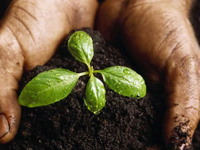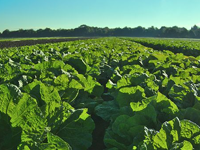-
Choosing the Best Material for Your Decking Project: A Comprehensive Guide - June 16, 2024
-
Sustainable Decking Solutions: A Comprehensive Guide to Eco-Friendly Materials - June 16, 2024
-
Avoiding Remodeling Nightmares: A Comprehensive Guide to Selecting a Reliable Contractor - June 10, 2024
-
9 Steps to Plan Out Your Home Improvement Projects - June 9, 2024
-
Low-Maintenance Deck Design: Enjoy Your Outdoor Space with Minimal Upkeep - June 9, 2024
-
Transform Your Home Like a Pro Even if You’re Clueless - June 8, 2024
-
Step-by-Step DIY Deck Building: Tips, Tricks, and Essential Considerations - June 8, 2024
-
Transform Your Bathroom: Essential Tips for a Successful Remodel - May 28, 2024
-
Unraveling the Mystery: Your Guide to Taking On a Roofing Project Like a Pro - May 27, 2024
-
13 Creative Ways To Give Your Floors A New Look - May 21, 2024
Why Is Organic Vegetable Gardening So Important These Days
Organic vegetable gardening seems to be the trend these days as more people have become conscious of what they are eating. This is because conventional methods which involve the use of harmful chemicals may enter our systems.
In order to control the problem, the US Department of Agriculture has issues a new directive. This encourages farmers to shift to organic farming.
With organic farming, farmers will no longer need to plant crops using genetic engineering, irradiation and sewage sludge. Instead, this will be replaced with crop rotation.
Crop rotation is the practice of planting a different crop in the same area where another crop once occupied. This keeps the soil’s nutrients fertile so it can be used again in the following season.
If you think about it, this approach is easier said than done as farmers are accustomed to the old ways of doing it. To help them change their minds, the government offers incentives and subsidies to farmers who decide to follow this plan.
But the main reason why organic vegetable gardening is so important is the fact that the crops harvested have 50% more nutrients and vitamins compared to that of conventional farming methods.
This means the food they consume will reduce the risk of people suffering from a number of diseases like diabetes, high blood pressure, heart disease and certain cancers.
Children who drink milk will be able to get more anti-oxidants, CLA, Omega 3 and vitamins when this is extracted from pastured grazed cows that will really strengthen their bones and muscles.
You can buy organically grown vegetables from the supermarket. The sad part is the almost everywhere you go, although the packaging comes from Department of Health, Quality Assurance International, California Certified Organic Farmers or the Oregon Tilth Farm Verified Organic, most of these are only 50% to 70% organic.
This is why homeowners who want to eat 100% organic vegetables are encouraged to grow these themselves.
There are two ways to make this happen. First, you buy the seedlings until they grow so you can harvest the. Second, you buy them fully grown and then just plant it into the ground.
Most people prefer the first because it makes them proud to know that what is served on the table was done from scratch.
In both cases, you have to prepare the soil, use compost and make sure that these are safe from threats such as insects, weeds and other animals that will eat what you have planted.
You can fight these with other animals, insects, organic fertilizers, deodorant soap and a few other items which you can find out after doing some research.
For those who don’t have a big garden, they can try growing these organically grown vegetables in containers. They require more water than those planted in the soil so give doses frequently.
There is no doubt that organic vegetables and other products are important these days. If you value your health and those of your family you can buy these from the store or plant it yourself.
For those who decide to buy organically grown vegetables, remember to wash before cooking them. This will remove any harmful substances or residue that may still be there which is invisible to the naked eye.

























